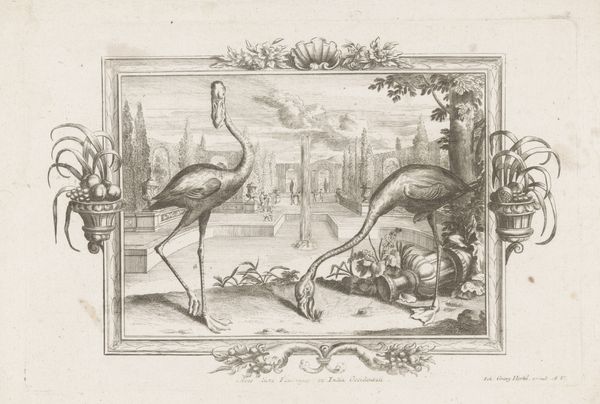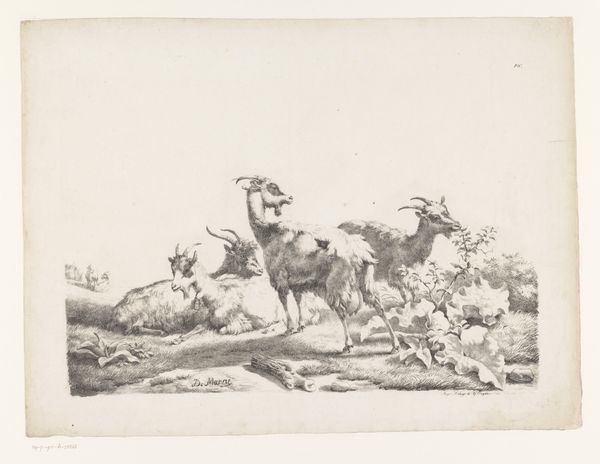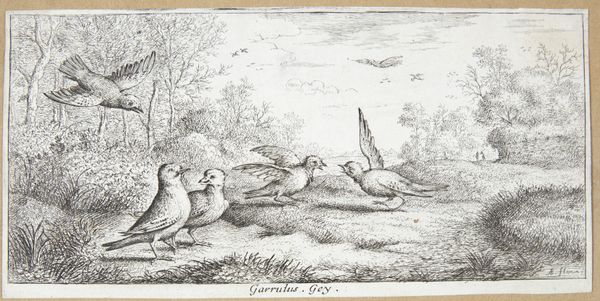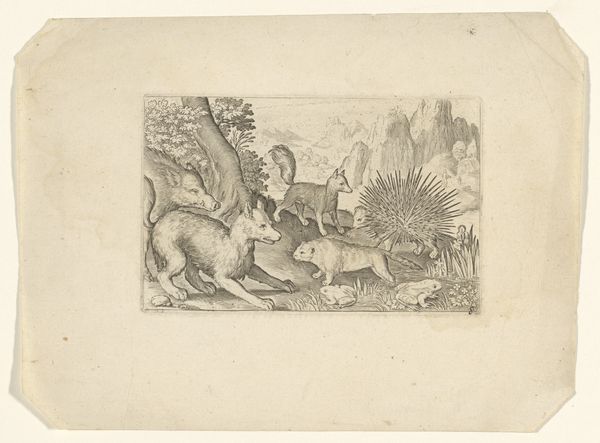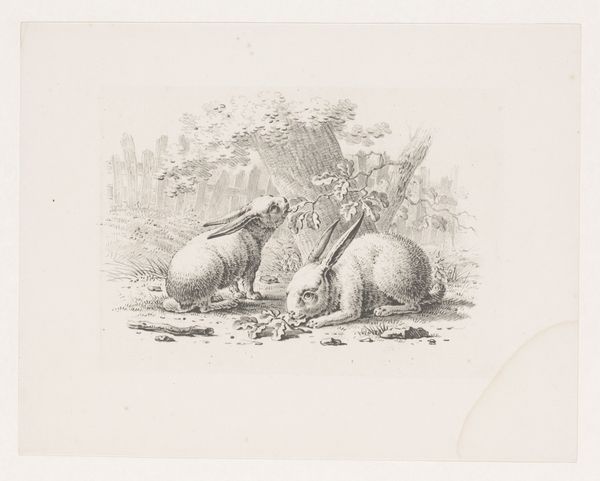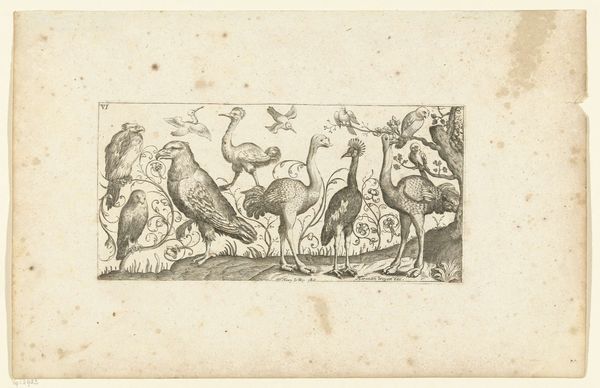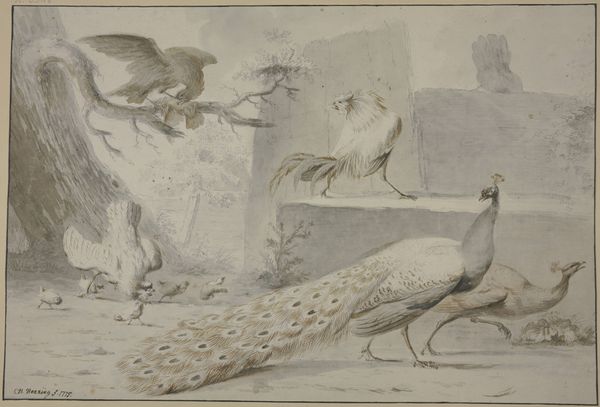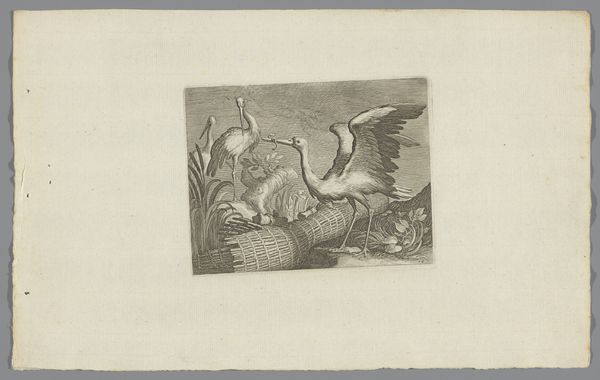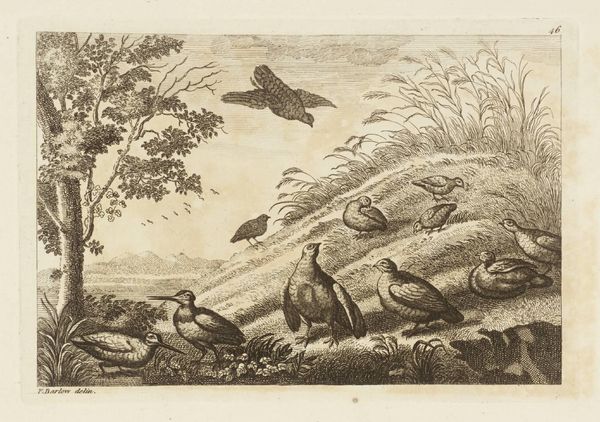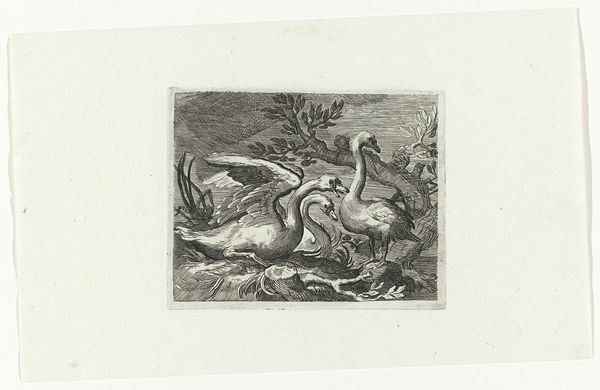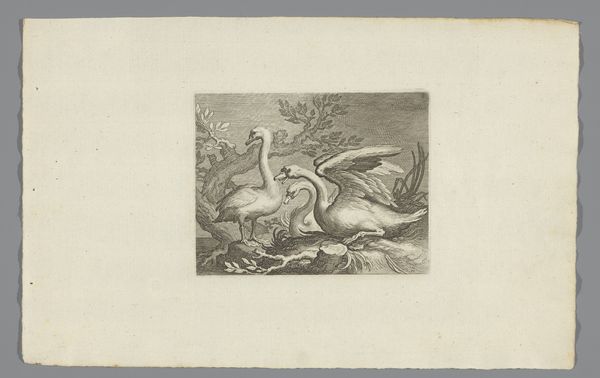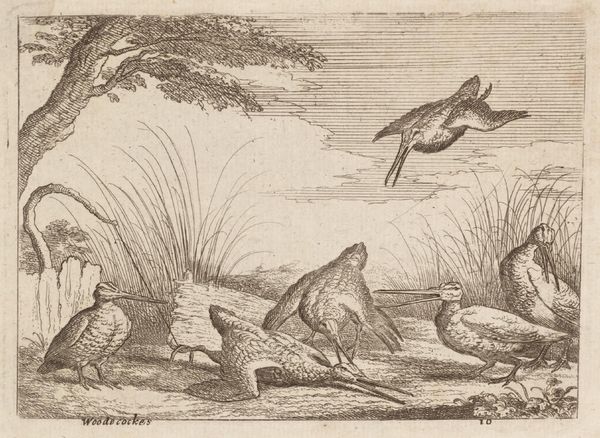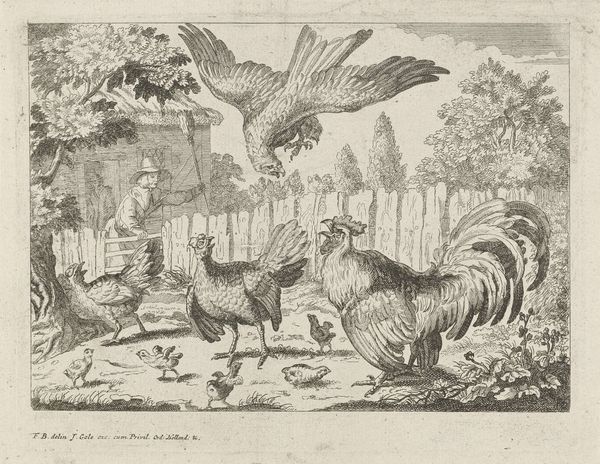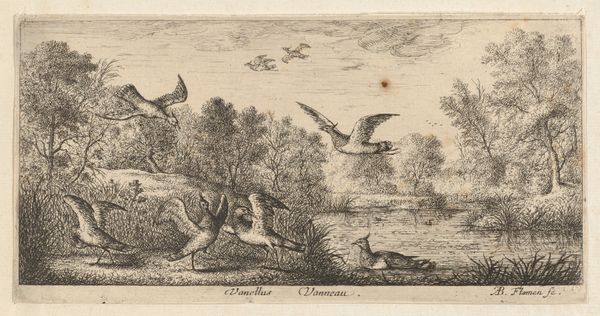
drawing, print, etching
#
drawing
# print
#
etching
#
landscape
#
etching
#
figuration
Dimensions: height 220 mm, width 275 mm
Copyright: Rijks Museum: Open Domain
Pieter de Goeje created this delicate image of birds at a water dish sometime in the first half of the 19th century. It’s an etching, meaning that the artist would have painstakingly drawn the image into a metal plate with a sharp needle, then used acid to bite away the exposed lines. Looking closely, you can see the remarkable control required to create such fine detail. The individual feathers, the subtle gradations of light and shadow - all achieved through the precise application of line. Etching like this was a highly skilled, laborious process, demanding years of training. The appeal of prints like this one was that they could be reproduced and distributed widely. They democratized images, bringing art into people's homes at an affordable price. So while the creation of the plate was time-intensive, the payoff was potentially great. Considering the context, we can appreciate de Goeje’s image not just for its aesthetic qualities, but also as a product of its time, embedded in the burgeoning culture of mass production and consumption. It’s a reminder that even seemingly simple images have complex stories to tell.
Comments
No comments
Be the first to comment and join the conversation on the ultimate creative platform.
